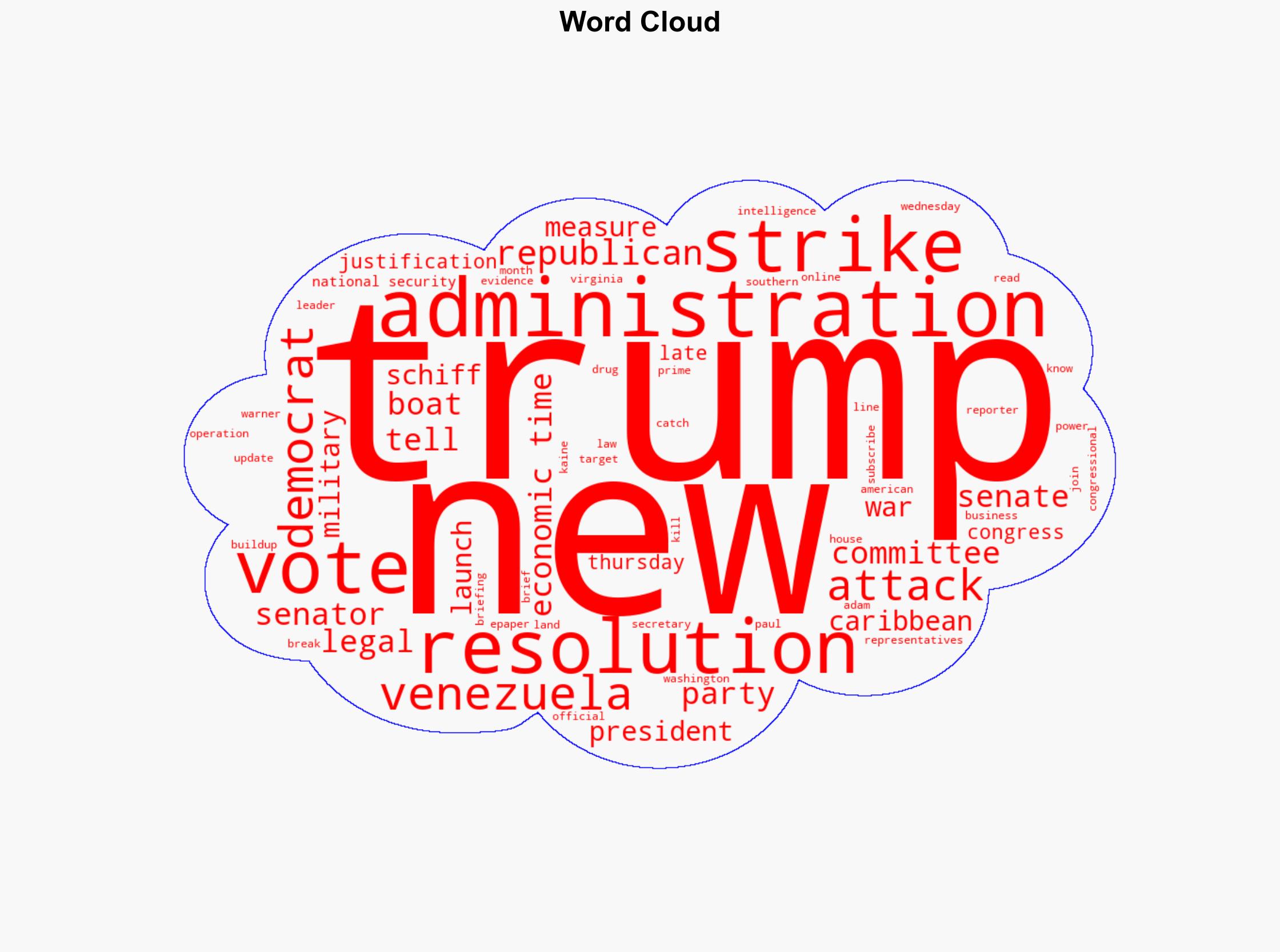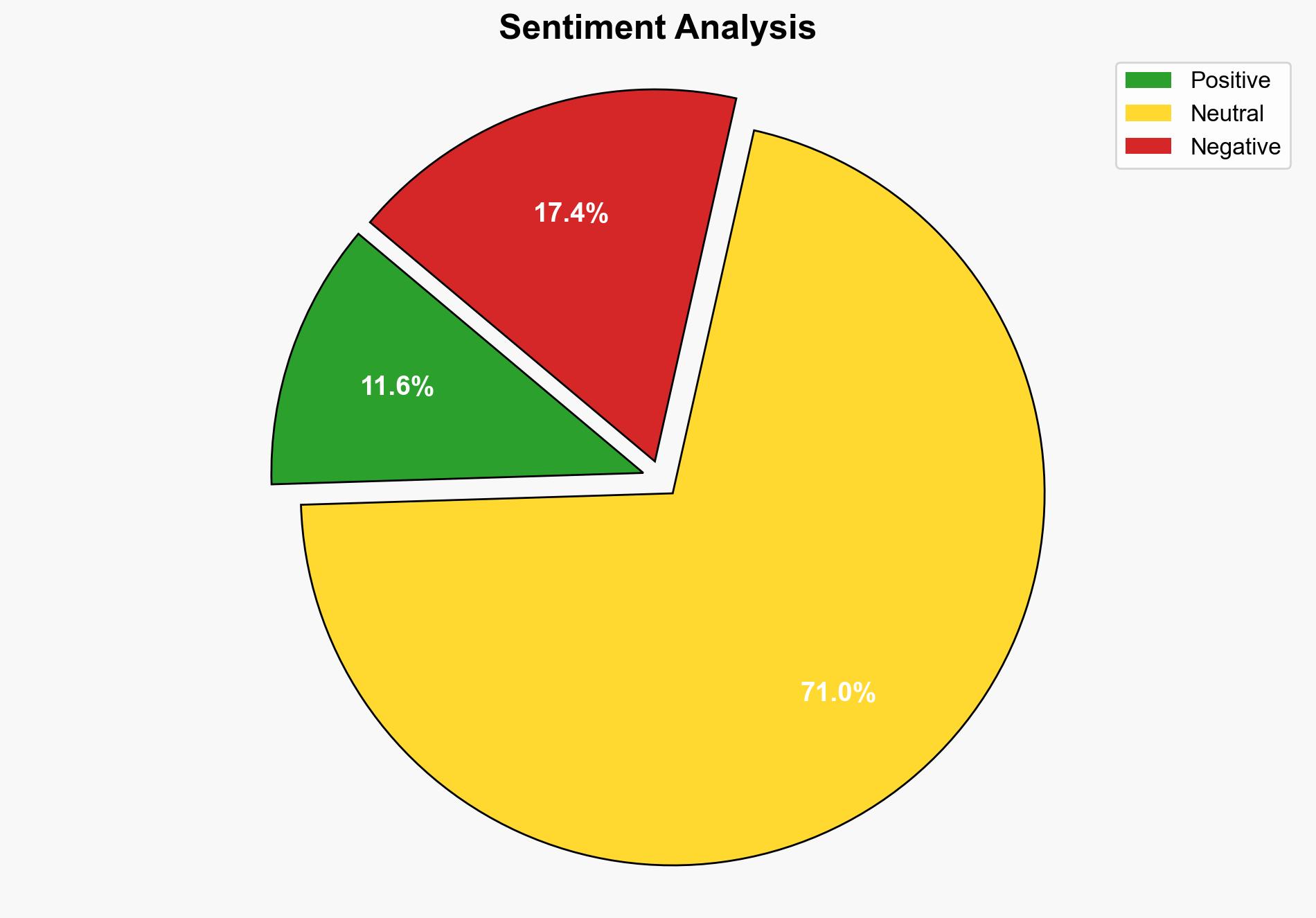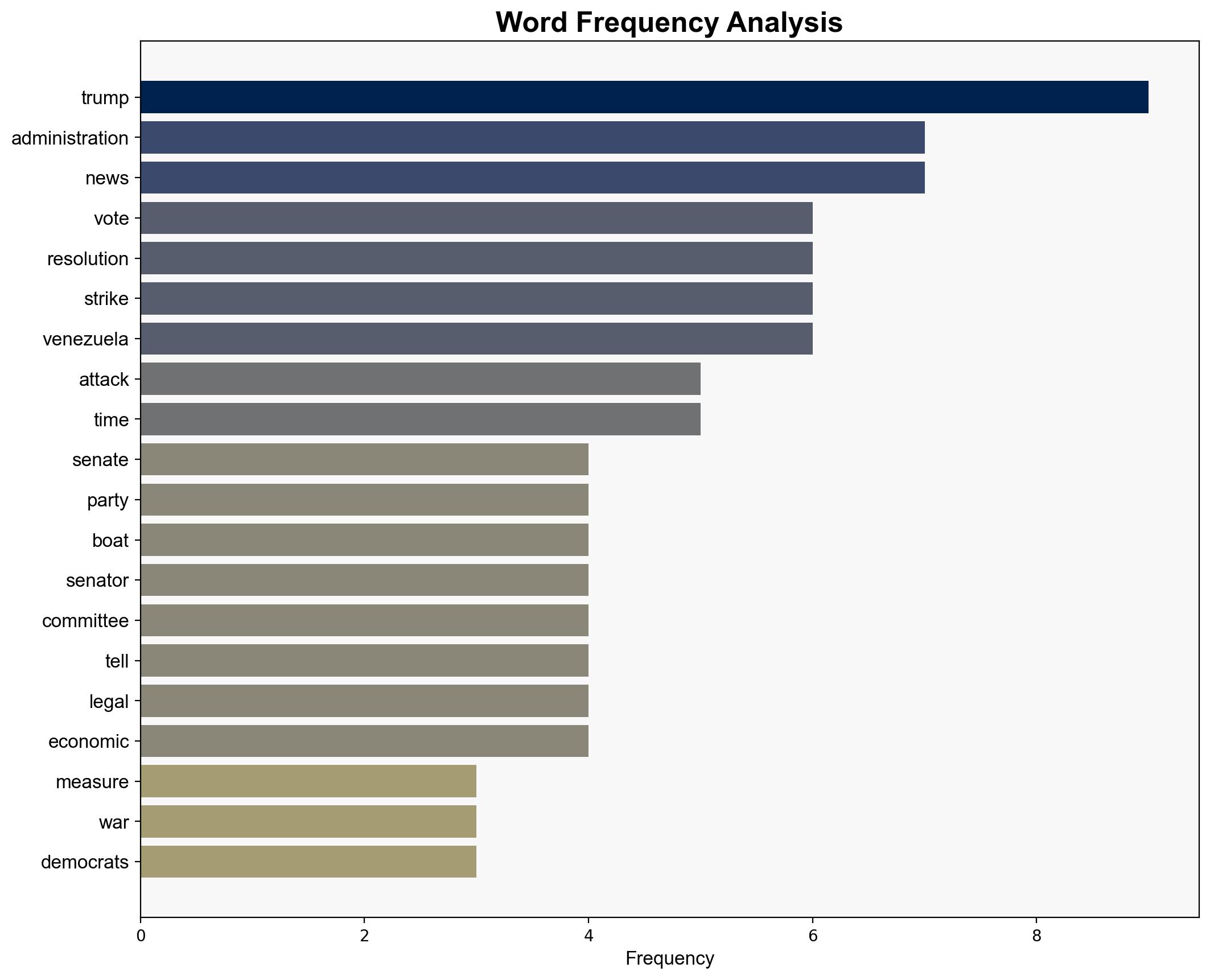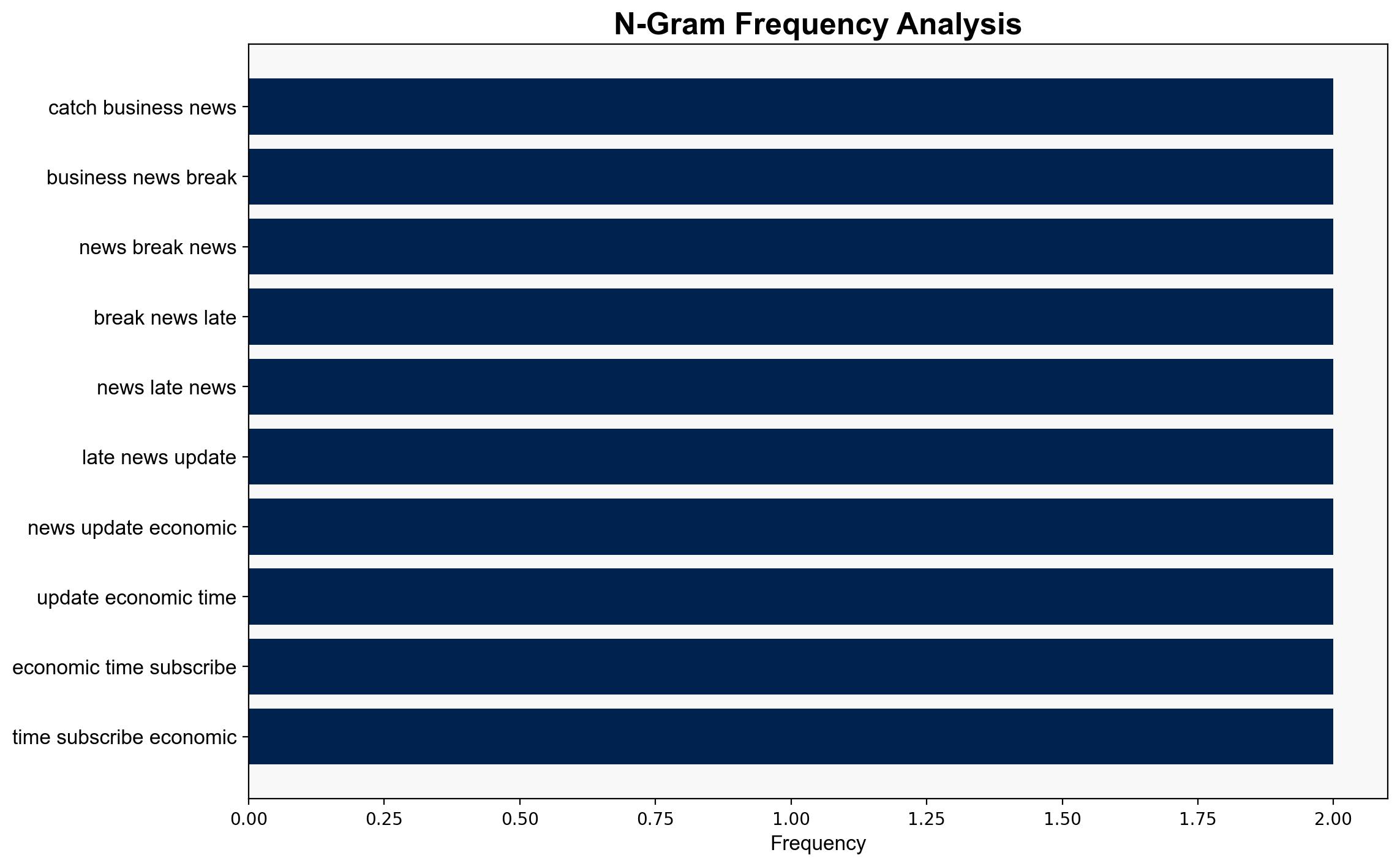US Senate blocks resolution that would have kept Trump from striking Venezuela – The Times of India
Published on: 2025-11-07
Intelligence Report: US Senate blocks resolution that would have kept Trump from striking Venezuela – The Times of India
1. BLUF (Bottom Line Up Front)
The Senate’s decision to block the resolution indicates a significant division in US political strategy towards Venezuela. The most supported hypothesis suggests that the Trump administration is leveraging military presence as a strategic deterrent rather than preparing for imminent conflict. Confidence level: Moderate. Recommended action: Monitor military movements and diplomatic communications for shifts in strategy.
2. Competing Hypotheses
1. **Hypothesis A**: The Trump administration is preparing for a military intervention in Venezuela, using the buildup as a precursor to action.
– **Supporting Evidence**: Increased military presence in the Caribbean, previous statements about potential covert operations, and the administration’s history of aggressive foreign policy.
2. **Hypothesis B**: The military buildup is a strategic deterrent aimed at pressuring the Venezuelan government without actual intent to engage in conflict.
– **Supporting Evidence**: Lack of concrete legal justification for an attack, bipartisan opposition to military action, and historical context of using military presence as leverage.
Using ACH 2.0, Hypothesis B is better supported due to the absence of direct action and the political cost of engaging in another conflict.
3. Key Assumptions and Red Flags
– **Assumptions**: The administration’s military buildup is assumed to be a signal rather than a prelude to action. The Senate’s decision reflects broader political sentiment against military intervention.
– **Red Flags**: Lack of transparency in legal justifications for military actions, potential cognitive bias in interpreting military movements as aggressive rather than strategic.
– **Blind Spots**: Limited insight into internal administration deliberations and possible covert operations.
4. Implications and Strategic Risks
– **Geopolitical Risks**: Escalation could destabilize the region, impacting US relations with Latin American countries.
– **Economic Risks**: Prolonged military presence could strain resources and impact trade relations.
– **Psychological Risks**: Domestic and international perception of US foreign policy could be negatively affected, leading to decreased trust.
5. Recommendations and Outlook
- Enhance intelligence gathering on military movements and diplomatic communications to detect shifts in strategy.
- Engage in diplomatic efforts to de-escalate tensions and clarify US intentions to regional allies.
- Scenario Projections:
- Best: Diplomatic resolution with Venezuela, reducing military presence.
- Worst: Military conflict leading to regional instability.
- Most Likely: Continued military presence as a deterrent without direct conflict.
6. Key Individuals and Entities
– Donald Trump
– Tim Kaine
– Adam Schiff
– Rand Paul
– Marco Rubio
– Pete Hegseth
– Adam Smith
– Mark Warner
– Jim Risch
7. Thematic Tags
national security threats, geopolitical strategy, military deterrence, US-Venezuela relations





